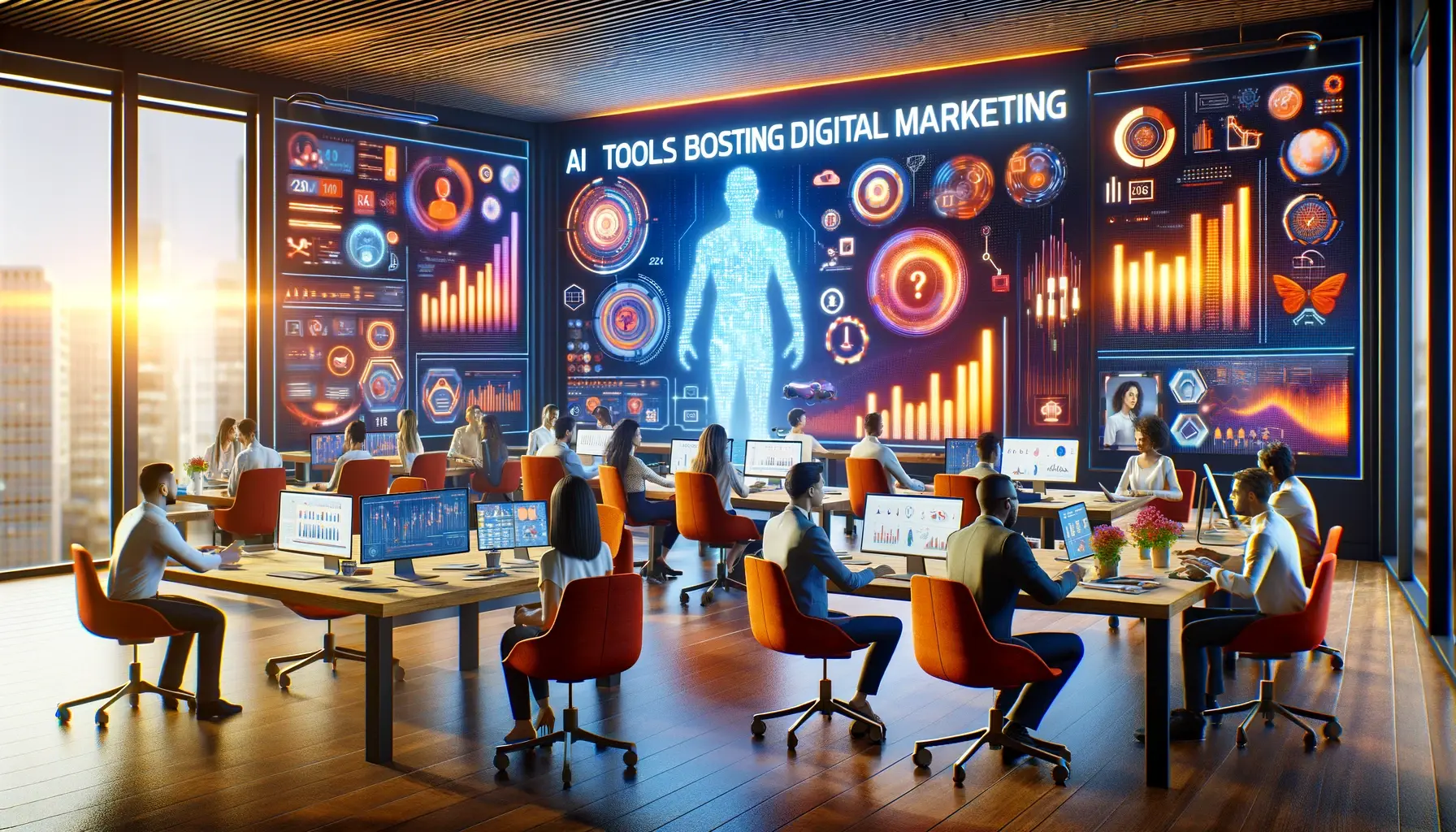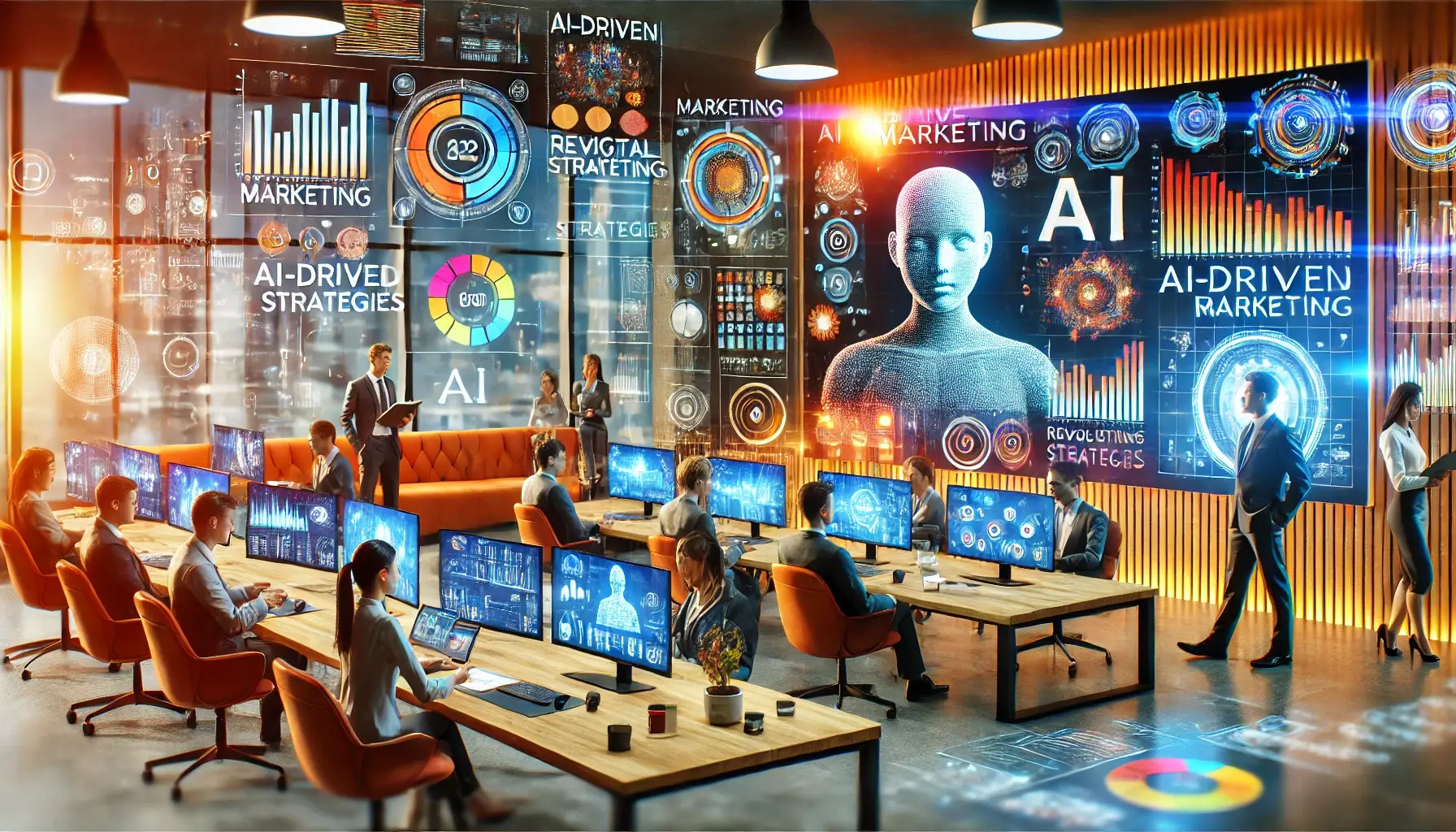5 min read
AI Advancements Boosting Digital Marketing: Top Tools for 2024
AI Tools for Digital Marketing in 2024: Revolutionizing the Industry in the USAIn recent years, artificial intelligence (AI) has transformed the...
3 min read
![]() The Amazing Team at Focus Digital Marketing
:
Jun 27, 2024 8:54:50 AM
The Amazing Team at Focus Digital Marketing
:
Jun 27, 2024 8:54:50 AM
AI Trends in Digital Marketing in 2024: Transforming Business Strategies in the USA
In today's fast-paced world, digital marketing has become an integral part of any business looking to thrive and succeed. As technology continues to advance, a new era has emerged, powered by Artificial Intelligence (AI). AI has drastically transformed various industries, and the digital marketing landscape is no exception. In this article, we'll delve into the AI trends in digital marketing in 2024, with a specific focus on its relevance in the USA.
Defining AI in Digital Marketing:
AI, in the context of digital marketing, refers to the integration of intelligent systems that can analyze vast amounts of data, identify patterns, and make data-driven decisions autonomously. It uses machine learning algorithms to automate tasks, personalize marketing campaigns, and improve customer experiences, leading to enhanced business strategies.
Key Components of AI in Digital Marketing:
1. Automation: AI enables businesses to automate repetitive tasks, such as data collection, content creation, and email campaigns. It reduces human effort and frees up resources for more strategic and creative endeavors.
2. Personalization: With AI, marketers can create personalized experiences for customers by analyzing their preferences, behavior, and purchase history. This level of personalization helps in developing targeted marketing campaigns and improving customer satisfaction.
3. Predictive Analytics: AI-powered predictive analytics provides businesses with valuable insights into customer behavior, helping them anticipate trends, identify potential leads, and optimize marketing strategies accordingly.
Implementation Steps for AI in Digital Marketing:
Implementing AI into a digital marketing strategy requires a systematic approach:
1. Data Collection: Gather and integrate large volumes of relevant data from various sources, including customer interactions, social media, and website analytics.
2. Data Analysis: Utilize machine learning algorithms to analyze the collected data, identify patterns, and gain insights into customer preferences and behavior.
3. Automation Integration: Integrate AI-based automation tools into marketing operations, enabling the automation of repetitive tasks and processes.
4. Personalization Strategies: Develop personalized marketing campaigns by leveraging AI insights to deliver tailored experiences to individual customers.
Benefits of AI in Digital Marketing:
1. Improved Efficiency: AI automates time-consuming tasks and processes, allowing businesses to streamline their operations and allocate resources more efficiently.
2. Enhanced Personalization: AI assists in creating personalized marketing campaigns based on individual customer preferences, leading to higher conversion rates and improved customer satisfaction.
3. Advanced Analytics: AI enables businesses to gain detailed insights into customer behavior, allowing for data-driven decision-making and more effective marketing strategies.
Challenges of AI in Digital Marketing:
Despite its numerous benefits, AI implementation in digital marketing also presents challenges:
1. Data Privacy and Security: Collecting and storing large amounts of customer data requires strict adherence to data privacy regulations to prevent breaches and protect customer information.
2. Human-Computer Interaction: AI systems need to be user-friendly and seamlessly integrated into existing marketing systems to ensure smooth human-computer interaction and employee adoption.
3. Ethical Concerns: As AI becomes more advanced, businesses must navigate ethical considerations related to data usage, algorithm bias, and the potential impact on jobs.
Analytics Report and Case Studies:
According to a recent report by McKinsey, AI is projected to have a significant impact on the digital marketing landscape in the USA by 2024. The study shows that businesses implementing AI in their marketing strategies have experienced a 50% increase in customer engagement and up to 30% improvement in conversion rates.
Several case studies highlight the successful integration of AI in digital marketing. For instance, Airbnb uses AI algorithms to analyze user preferences and show personalized recommendations, resulting in a 14% increase in bookings. Coca-Cola leverages AI-powered chatbots to handle customer queries, reducing response time by 99%. These examples demonstrate the tangible benefits of AI in customer engagement and operational efficiency.
Future Trends in AI and Digital Marketing:
Looking ahead to 2024, several trends are expected to shape the AI landscape in digital marketing:
1. Voice Search Optimization: With the rise of virtual assistants, optimizing websites and marketing campaigns for voice search will become crucial for businesses.
2. Enhanced Customer Service: AI will continue to evolve, showcasing more advanced chatbots and virtual assistants capable of handling complex customer interactions.
3. Hyper-Personalization: As AI algorithms progress, businesses will be able to deliver highly personalized experiences in real-time, catering to individual customer needs and preferences.
In conclusion, AI is set to revolutionize the digital marketing landscape in the USA by 2024. Its integration in marketing strategies brings numerous benefits, including improved efficiency, enhanced personalization, and advanced analytics. However, challenges such as data privacy, human-computer interaction, and ethical considerations need to be addressed. As AI continues to advance, future trends such as voice search optimization, enhanced customer service, and hyper-personalization are expected to shape the digital marketing landscape. Embracing AI in digital marketing strategies is vital for businesses aiming to stay competitive and provide exceptional customer experiences in the rapidly evolving digital era.
For more information on AI in digital marketing and the latest trends, visit the Focus Digital Marketing website.
---
FAQs:
Q1: How can AI improve the efficiency of digital marketing strategies?
A1: AI automates time-consuming tasks, streamlines operations, and provides actionable insights, allowing businesses to allocate resources efficiently and make data-driven decisions.
Q2: What are the potential ethical concerns associated with AI in digital marketing?
A2: Ethical concerns include data privacy and security, algorithm bias, and job displacement, which need to be addressed to ensure responsible and ethical AI implementation.
Q3: How can AI enhance customer experiences in digital marketing?
A3: AI enables businesses to deliver personalized experiences based on individual customer preferences and behavior, resulting in higher engagement, increased satisfaction, and improved conversion rates.

5 min read
AI Tools for Digital Marketing in 2024: Revolutionizing the Industry in the USAIn recent years, artificial intelligence (AI) has transformed the...

5 min read
The Future of AI in Digital Marketing: Transforming the Landscape in the USAIntroduction:As the world continues to witness rapid technological...

4 min read
The Future of Digital Marketing with AI: Relevance in the USAIntroduction:In today's fast-paced and increasingly digital world, the utilization of...